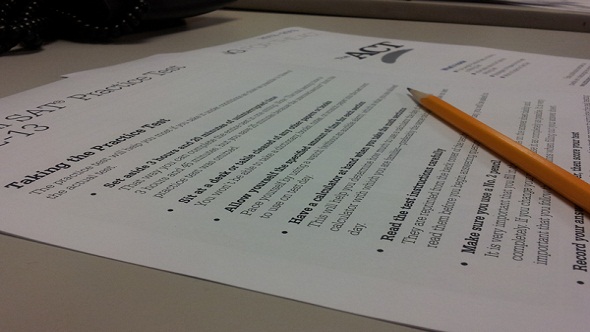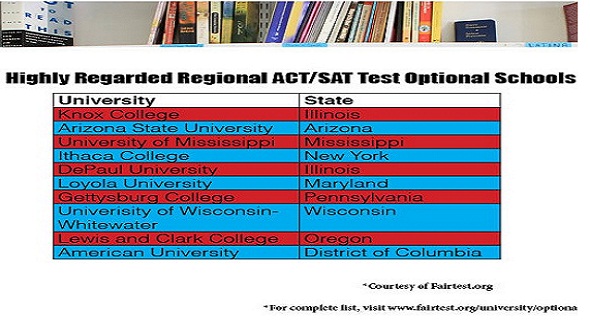WASHINGTON – Nearly 20 percent of degree-granting U.S. colleges and universities are making it optional to submit the ACT and SAT entrance exams as part of the admissions process.

The standardized tests, long loathed by high school students and prized by top tier schools, are getting a fresh assessment thanks to a more-holistic approach to college admission.
“After a long discussion and a lot of studying, we decided that test scores may not be the best indicator of academic success,” said Gary Bracken, the vice president for enrollment at William Jewel College in Missouri.
The private liberal arts college has received positive feedback from potential students – and their parents – since becoming test optional this summer, Bracken said.
More than 850 college and universities no longer require the tests as part of freshman admission, said Bob Schaeffer, a spokesman for FairTest.org, which advocates against the exams.
Fair Test asserts that the standard tests discriminate against students from certain racial, cultural and socio-economic backgrounds, working with educators and civil rights leaders to get schools to consider other grounds for admission.
“The test-optional movement continues to build on itself,” Schaeffer said.
Several highly-regarded schools have gone ACT/SAT optional, including regional private schools such as Loyola University in Maryland and Knox College in Illinois, as well as large public schools such as Arizona State University.
Other schools, places like New York University and the University of Rochester in New York, are “test flexible,” meaning in place of ACT and SAT tests a student can send advanced placement tests or SAT subject tests instead.
Lees-McRae College, a private Presbyterian school in North Carolina, recently joined the test-optional trend.
“We believe in taking a more holistic approach to the admissions process, getting to know our students through interviews, campus visits and personal interactions,” said Ginger Hansen, Lees-McRae’s vice president of enrollment management and communications.
About 80 percent of U.S. colleges and universities, including the most-elite in the nation, still require the exams as part of admissions.
That could change, though, as the he increase in test-optional schools puts pressure on the ACT and SAT testing companies to evaluate their assessment practices or risk losing their relevance to potential students.
“If the only tests that continue to exist are the SAT and ACT I think we are bound to see an increasing large number of colleges switch to the test optional format,” said David Hawkins, the National Association of College Admission Counseling’s director of public policy and research.
With an increasing call for common core standards, which push for unified academic expectations, Hawkins said the tests could work hand-and-hand with the newly accepted standards.
Hawkins envisions a new paradigm where performance on common core standards, because they are so widely agreed upon, becomes a central factor in college admissions decisions.
For their part, the testing companies still see a role for themselves.
“Our numbers are growing every year and this year we had a record number of students tested in the 2012 graduating class,” said Ed Colby, a spokesman for ACT.
Colby said ACT is taking steps to consider common core standards in its testing – and he observed that tests are also critical criteria for counselors and advisers.
“Many of the schools that are going test optional are still using ACT scores to help guide their admission process and also guide their advising process,” Colby said.
